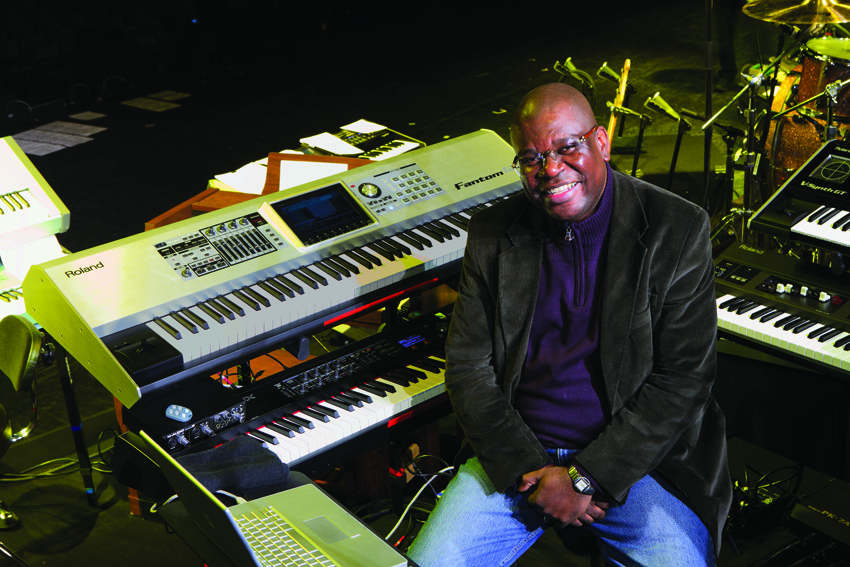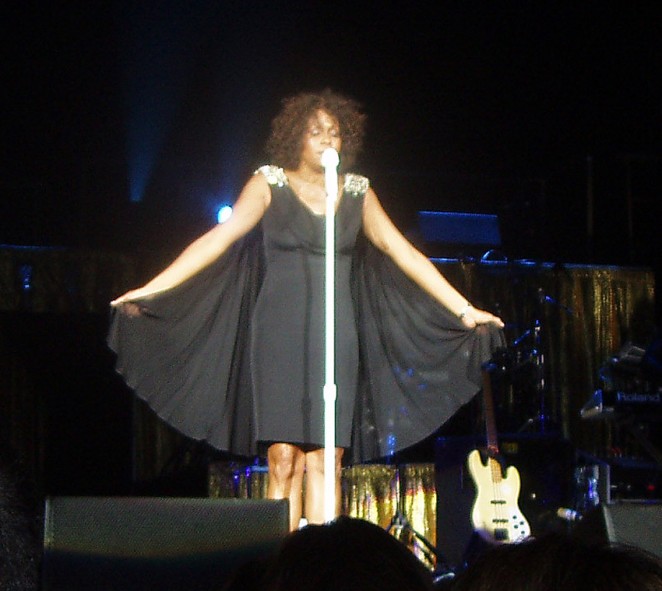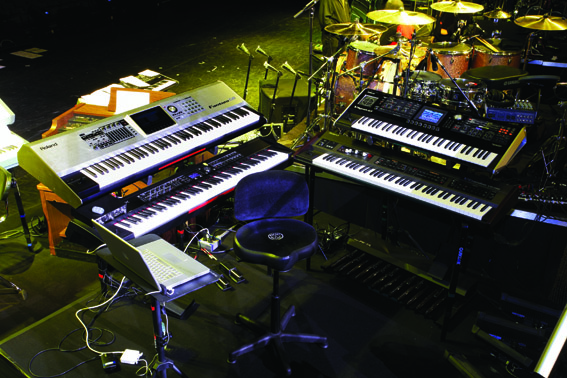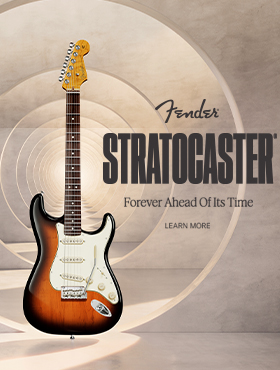 It was one of the most controversial tours to hit Australia in a long time. It had been almost two decades since we’d seen Whitney Houston perform, and clearly the golden voice behind some of the biggest selling singles of all time had changed. The mainstream media leapt onto the ill-fated tour in a feeding frenzy of negative press. Claiming ‘respiratory problems’, Whitney struggled to reach some of those soaring high notes she is famous for. However, when singing in a lower register, it was not a problem. Personally, I was never a fan of her brand of pop, but went along to Houston’s final Australian gig and was surprisingly entertained. What I witnessed was a brave and honest performance by an artist who was quite open about her vocal shortcomings. Despite reports of audience unhappiness, the crowd on this night was right behind her.
It was one of the most controversial tours to hit Australia in a long time. It had been almost two decades since we’d seen Whitney Houston perform, and clearly the golden voice behind some of the biggest selling singles of all time had changed. The mainstream media leapt onto the ill-fated tour in a feeding frenzy of negative press. Claiming ‘respiratory problems’, Whitney struggled to reach some of those soaring high notes she is famous for. However, when singing in a lower register, it was not a problem. Personally, I was never a fan of her brand of pop, but went along to Houston’s final Australian gig and was surprisingly entertained. What I witnessed was a brave and honest performance by an artist who was quite open about her vocal shortcomings. Despite reports of audience unhappiness, the crowd on this night was right behind her.
Also adding to the enjoyment of the evening was Houston’s amazing band. One of the key members of the band is keyboard player and some time acoustic guitarist, Jetro Da Silva. When Brazilian born Da Silva is not touring with Whitney or playing with some of the world’s finest acts, he returns to his day job as professor at the prestigious Berklee College. On the morning of the final Aussie show, Jetro kindly invited me down to his hotel for a chat about his career and his role in Whitney Houston’s band.
GP: What were your musical influences growing up? Were your parents musical?
JDS: My mother was a choir member. She sang in a Baptist church in Brazil. My uncle, who was also an officer in the navy, was a choir director. Also my grandmother used to play accordion, so there was always singing. I grew up listening to Brazilian music, the sambas, but at the same time listening to a lot of American music which had been imported into Brazil. Also, they brought hymns. So when I moved to America, it wasn’t hard for me to adapt to the music there because I grew up listening to Pastor Andrae Crouch and The Hawking Singers.
You teach at Berklee college. What is it about teaching that appeals to you?
The students make the whole thing delightful and exciting. They are my inspiration. I started at Berklee as an administrator, but the time came when I wanted to do more than sign papers and design courses. So a position came up as professor where I would have more opportunity to engage with the students. That was the greatest decision I ever made. It’s been great to watch the students’ development and to meet great, talented musicians. And at Berklee you have the whole spectrum.
A piano player has a special musical relationship with the vocalist. What is it about piano and voice that go together so well?
We can talk musically but the emotional and spiritual side is also important. I would use one verb to combine it all … ‘LISTEN’! You have to be able to listen and breathe with the singer. It’s not just a matter of playing the right chords but knowing WHEN to play, and HOW to play … knowing the lyrics. Piano players should know the lyrics not just the melody, because the singer can go in another direction. There is a connection but it can be very disconnected if the pianist, instead of accompanying, tries to lead. Of course sometimes there’s compromise with leading the singer here and there. It is funny that you ask that because I created a course at Berklee, ‘Vocal Compliment’ and we deal with that. There’s a lot of talking before we get into the playing and I actually do two things. I make the singers learn the chords and I get the musicians to memorise the lyrics, and they have to sing the melody in order to get themselves in the place of the singer. So I think the issue is compromise and the ability to listen. There are moments when the singer may decide to jump to the bridge. The musician accompanying should be able to follow the singer, even if the chart is saying the next thing we should be going to is the second verse. So all that takes a process. I remember when we were in Sydney. We were at the bar joking around. Whitney was there. I started playing this church song. Then she said to me, just follow. My interpretation was to ‘place’ the chords. Don’t think as a pianist. Think as an orchestra playing pads for her. This is the violin, the viola, this is the cello, this is the bass .. think like that. And she was like … yeah (whispered). So in answer to your question (laughs) … basically in that moment
I had to listen to her and follow her as an orchestra. We were not on stage, but it was one of the greatest moments we have had together!
And what about ‘space’, knowing when not to play?
To me space plays a great role. Being from Brazil, the vocalists, the piano players, the guitarists … we are programmed to be more orchestral. Space speaks very, very loud to me. I love space. That’s why I love Bill Evans on the album he does with Tony Bennett. You don’t miss the drummer. You don’t miss the bass player. The silence still speaks. That’s when the breathing comes in. I did a little martial arts and that’s where I learned the importance of breathing.
It wasn’t so much about punching someone but respect and breathing and enjoying space.

How did you first hook up with the Whitney Houston band?
1999. At the time the other keyboard and the percussionist were the only ones to get the call from Rickey Minor (musical director at the time). The rest had to audition. We didn’t audition because we had previously worked with Rickey Minor on shows like Motown Live and the American Music Awards. So when he had to put together a new Whitney Houston band, he put us together based on musical background, church background and because we understood following singers and we understood pop music, R ‘n’ B and gospel.
With many artists, their voice changes over time. Are you finding now with Whitney that the arrangements are changing and you are playing songs in different keys, tempos?
That’s a loaded question. There are a lot of things there! Yes we deal with the age … the keys change. OK, I have to be straight … tunes like ‘I Will Always Love You’, used to be in a different key. I’m not sure if it was B flat or A, but we are in G right now. Because we are not dealing with Whitney Houston from 1986. This is a mature Whitney Houston who went through a lot in life. A very mature lady and the songs tend to go to a lower register. But that can be an issue. When you play in certain keys, the voices, the keyboard player even the guitar … the colour changes. You know, it’s one direction, but when you change the key … like ‘How Do I Know?’, we were playing in E I think. Then the next day the musical director told us, no we are going to play that a whole step down. So we had to adjust because the way the voices were set up, if we had to play in the same register, it would be too low so we had to play an octave higher. So there are some adjustments that have to be placed, but throughout the years, it is inevitable that the key changes. Why I said it is a loaded question, is … when you are dealing with an organisation where there is enough time to hire a copyist to write for you the key (changes), great! But when you are dealing with the time factor, that’s when experience speaks louder. If you don’t know how to play all the tunes in all the keys, you are in trouble. Because there is just not enough time. Like when we did the Oprah show .. a few months ago we were playing ‘I Look to You’. I arrived at the hotel.
I was a little later because I was in the second car. When I arrived, I found out that everything we were going to play, was now a half step lower. We didn’t have time to get a chart. If I didn’t know how to transpose .. and as we’re talking to a musician’s magazine here, I can tell you it is important not to rely on technology only, or on someone else to rewrite the chart for you … the old school way of where you have to be able to transpose in all keys is very important. Especially if you are dealing with singers. Transposition plays a great role.
With three keyboard players in this band, how do you work out who plays which part?
Well there is the piano part which is played by Cedric. But in this gig we split the roles. Sometimes I play the Rhodes. Some tunes I play the organ or strings or pads or bells. Sometimes I’ll play some weird patches, some 21st century sounds. Playing a Roland Fantom I have pads, I have horns inside, harp sounds etc. And the other keyboard player is Arty. Because sometimes we play with the computer, using Digital Performer as the main software … the intention of the musical director, Michael Baker, is to make the sequencer move a little more … so he has Arty playing some of the similar parts to compliment the computer sequencer. Cedric and I are the ones playing the main parts.
 How many keyboards do you have on stage?
How many keyboards do you have on stage?
Four. In front of me I have a (Roland) Fantom G8 on top and (Roland) RD700GX on the bottom and that’s where you mainly see me playing. By my side I have another keyboard for the organ sound a (Roland) VR 700. The reason why I chose it that way, was that the patches in this particular organ are connected to a Leslie (Speaker). Sometimes in ‘I Love The Lord’ I am playing strings and there’s one point where she goes into a worship section, singing ‘hallelujah’ and I flow with her. Sometimes if she goes into shout music, Afro American worship, whatever you want to call it, I jump from piano to organ. Then I have the V Synth (GT) which I use for the ‘house’ stuff, the new stuff. It’s all Roland gear. I am a loyal guy!
Do you travel with the same gear or pick up keyboards from country to country?
Actually, the Whitney Houston people purchased the whole thing.
I am traveling with the same gear, my gear. I have a tech Joe Wolf. He sets up everything and we do the programming together. I’m also a programmer. My major at Berklee was Music Production and Engineering. So the beauty of having our own gear is that we don’t have to rely on other people, where you arrive somewhere and they might say, we don’t have the RD700GX, but we do do have the 700. Sometimes people don’t understand that we have to be very specific with gear due to the programming.
So with this range of Roland gear you can do the programming at home or whatever and just place it onto a USB stick and bring it to the show I believe?
Yes, on a USB key.
Did you spend much time programming for this tour?
Not a lot. We had to do a lot of combination but not a lot of programming. We also use Logic Mainstage. There are two songs we program in Mainstage where it’s more like a controller thing, using the volume pedal to change the oscillator. But to answer your question, this time Joe did a lot of the programming. We just found the sounds which were close to the albums and tweaked them a little bit. I really don’t think today we do much real programming like in the 70s, where you’d start a sound from scratch.
The new Roland keyboards have a lot of features, did it take you long to learn your way around things on the RD700GX for example? No. I did a video for Roland on the RD700GX which is up on YouTube. I just saw the RD for the first time that day. Chris Holland showed me the stuff and he said he had to go somewhere and he’d be right back. So he came back and I am not lying … in ten minutes I had learned to do the split and many other features. So when he came back, I had four sounds happening at the same time and I was composing on the spot and he was like OK, quick, let’s shoot this video now! It’s a very intuitive keyboard.
But I had to keep the RD for this particular job. First of all I like the ivory touch. They had me there. Secondly the programming is very user-friendly. It’s not like some keyboard companies where things are very complicated. With this, everything is in your face. I like the feature where you can open and close the piano. I like all of these little features … open and close the oscillators … and they are all there in your face, and the RD has the classic sounds of many synthesisers right there so you can do a lot with just one RD. There’s the feature that you can save everything on the USB, right there. I just love the RD.
At this point, Whitney’s brother Michael, who was touring with her as a backing singer, casually strolled up to say hello. Michael enquired as to what we were doing. Jetro introduced me as a journalist and told him that we were just having a chat. Without a word more, Michael turned and left straight away. Not long after a booming voice came down from a hotel window many floors above. “Jetro, whatcha doin?” “Hi boss,” came the reply from Jetro. “It’s Whitney,” he whispers to me. She then shouted something else that we clamoured to hear but couldn’t quite decipher. “What’s she sayin?” he said to me. “All good boss,” he shouted back.” Whitney’s voice trailed off as she headed back into her room. Feeling a little less comfortable than what he’d been to date, Jetro decided that maybe we should be wrapping up. The plan would be that we would catch up later at the gig and say hi again. Jetro supplied a tour manager’s number and told me to call when I arrive at the venue. On arrival at the gig I called but there was no answer. I tried again a few minutes later and again no answer, so I left a message thinking I’d try again after the concert. After the gig I tried once more but to no avail. It seemed that the lines of communication had been shut down.
To find out more about Jetro , visit http://www.berklee.edu/people/jetro-da-silva


